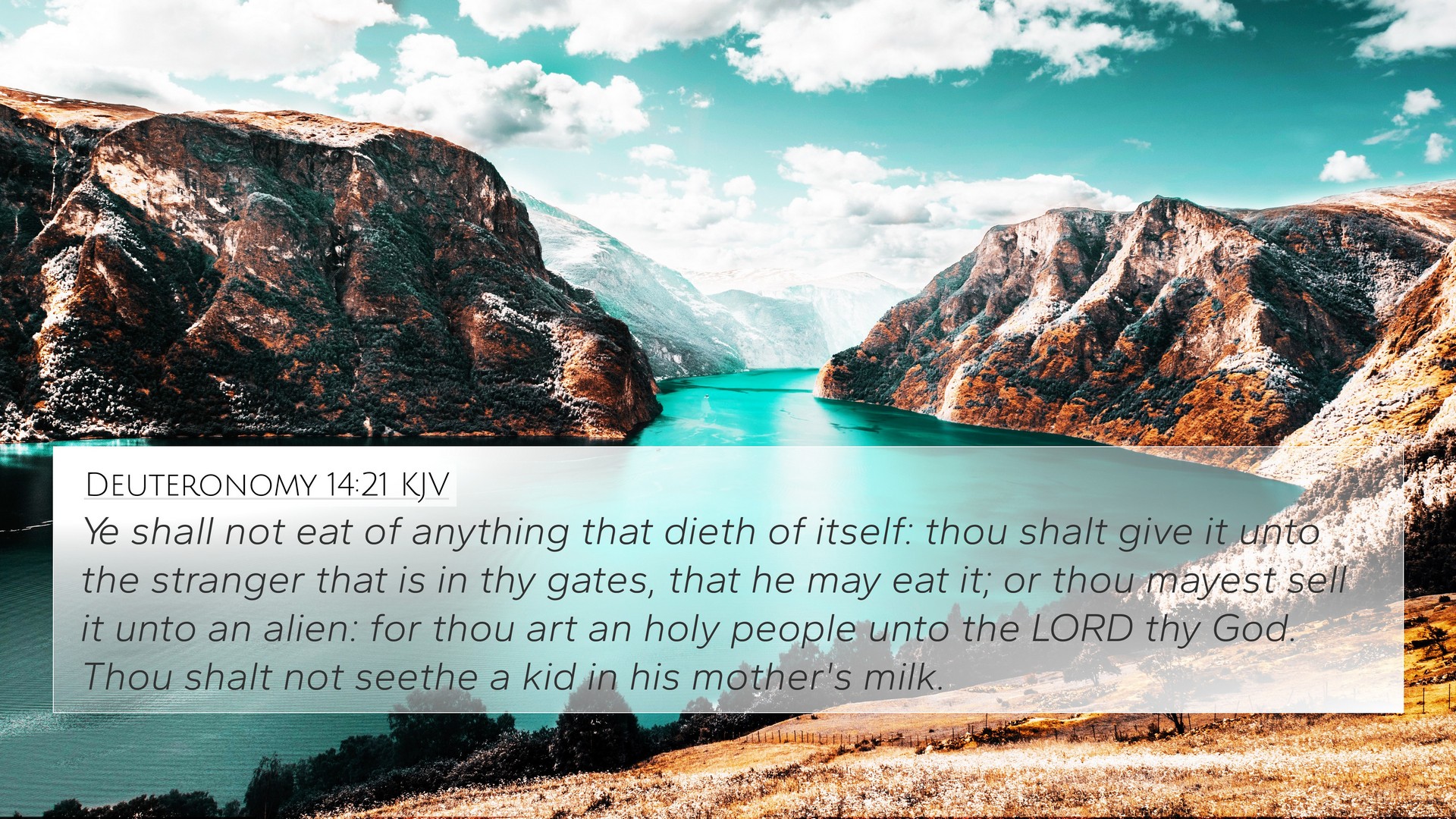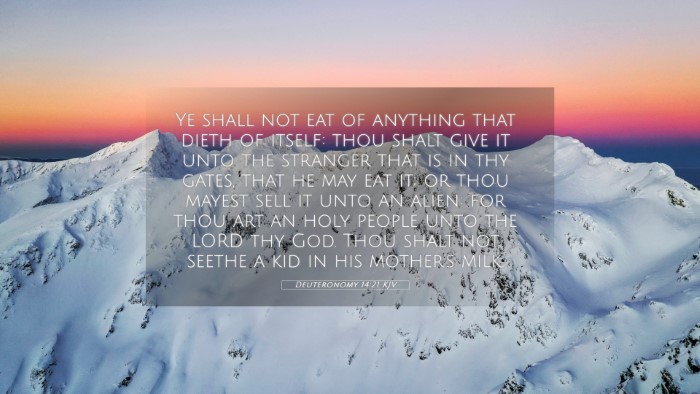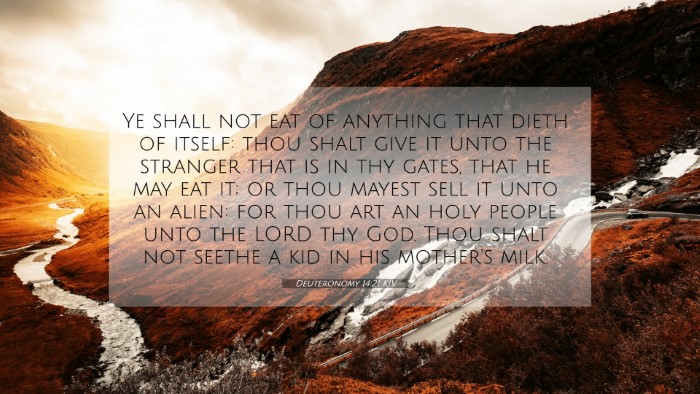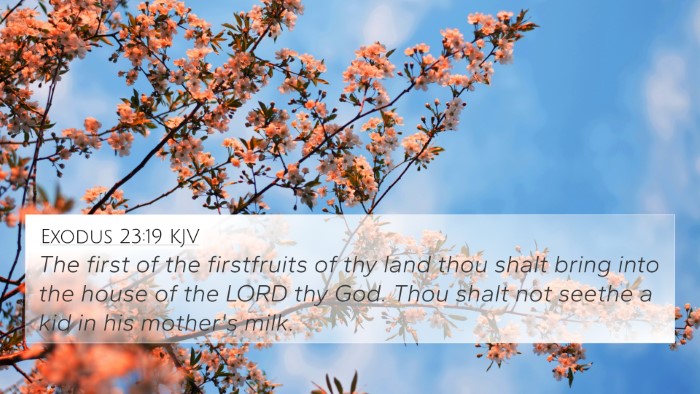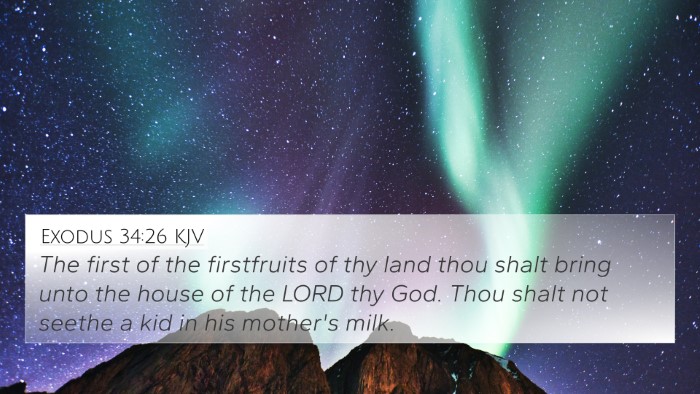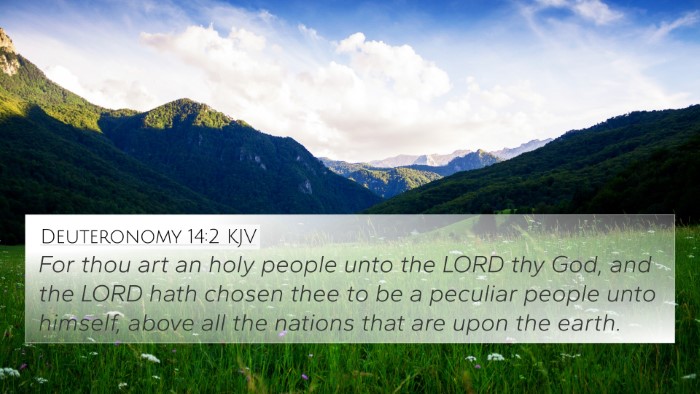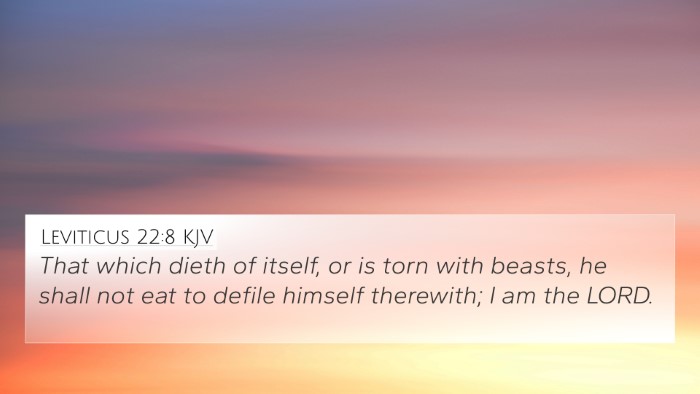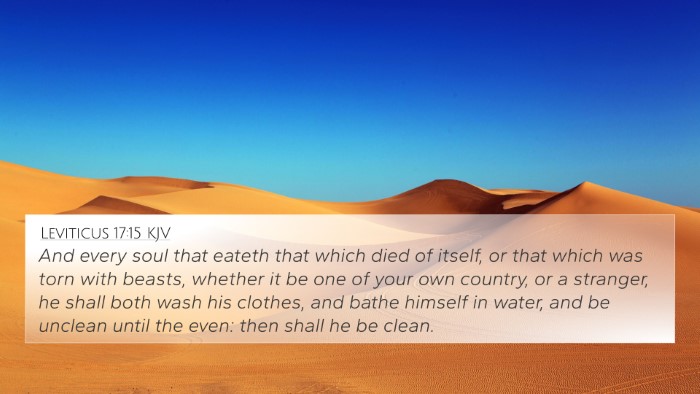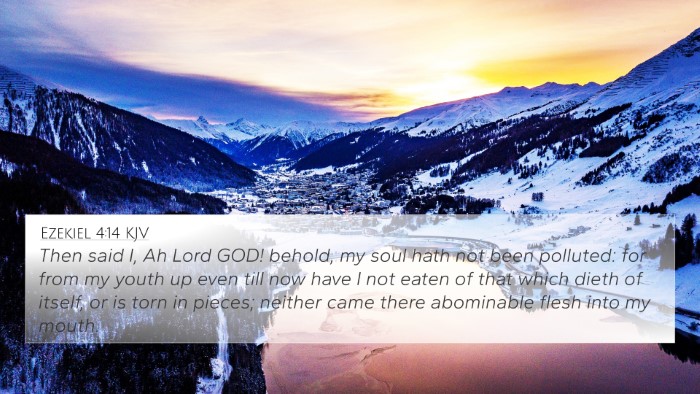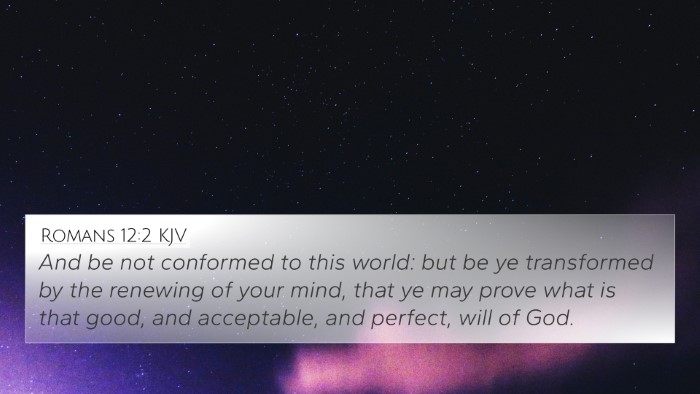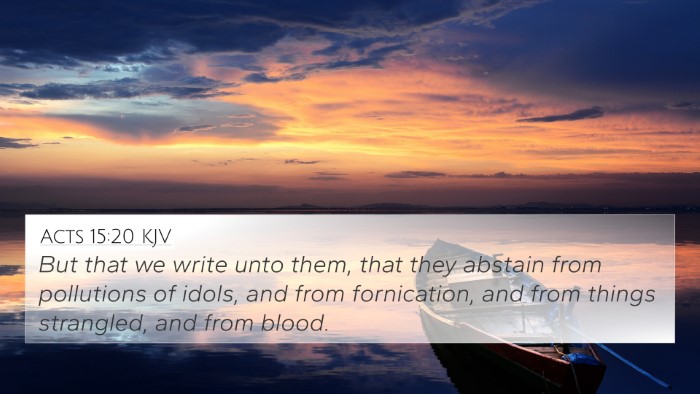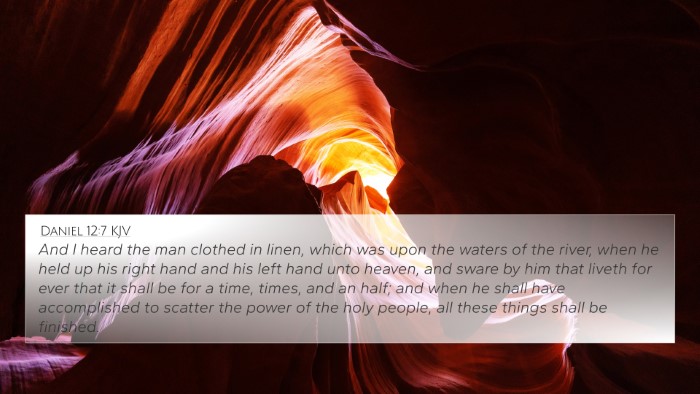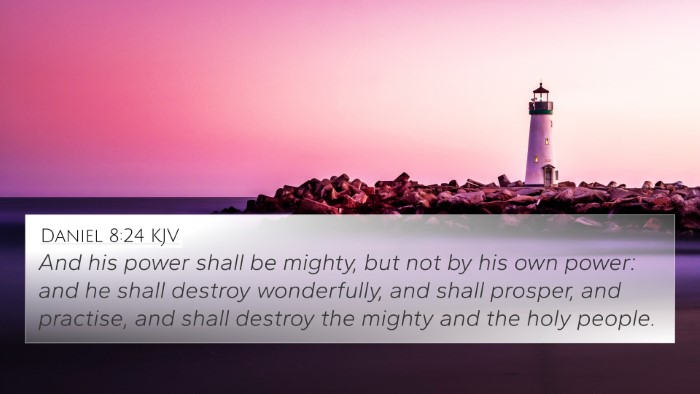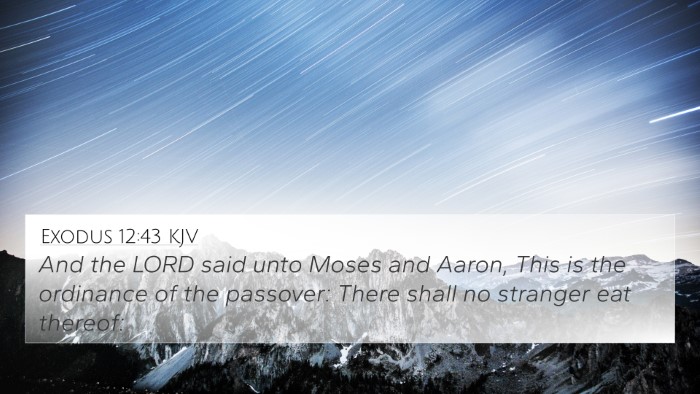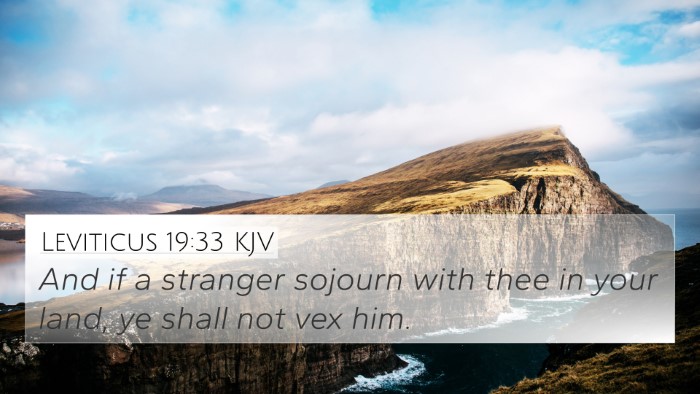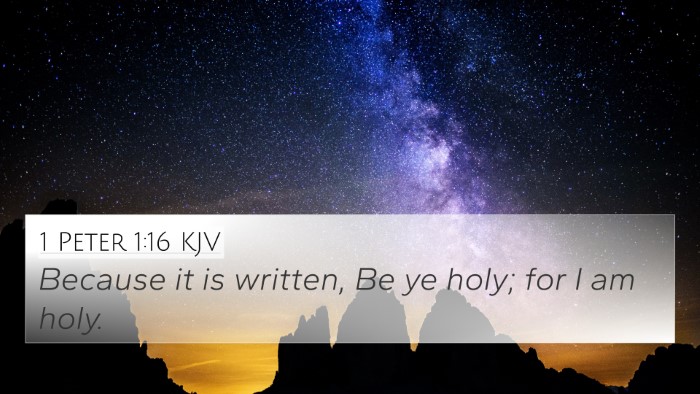Understanding Deuteronomy 14:21
Deuteronomy 14:21 states, "You shall not eat anything that has died naturally. You may give it to the alien who is within your gates, that he may eat it, or you may sell it to a foreigner. For you are a holy people to the LORD your God. You shall not boil a young goat in its mother's milk." This verse emphasizes the dietary laws that were given to the Israelites and the importance of holiness and separation from practices deemed unclean or unsuitable.
Summary of Insights
The verse can be understood through various interpretations and applications provided by respected public domain commentaries, which help clarify its intent and implications for the Israelites and for modern readers.
-
Matthew Henry's Commentary:
Henry notes the command against consuming animals that died of natural causes. He emphasizes that this restriction serves to uphold the sanctity of food among God's people, distinguishing them from other nations. The provision to offer the carcasses to non-Israelites rather than waste them suggests a level of compassion even toward foreigners.
-
Albert Barnes' Notes on the Bible:
Barnes highlights the association of this law with the overall dietary restrictions in the Mosaic Law. He explains the significance of maintaining ritual purity and the symbolic nature of these laws. The prohibition of boiling a goat in its mother's milk underscores not only dietary discipline but also the rejection of pagan practices surrounding food.
-
Adam Clarke’s Commentary:
Clarke reflects on the broader relevance of holiness that permeates the instructions given to the Israelites. He points out how these food rituals illustrate the concept of being holy and set apart for God’s purpose. The prohibition against specific practices, like mixing a young goat with its mother's milk, serves to preserve a sense of respect and reverence toward creation.
Thematic Connections
Deuteronomy 14:21 serves as a vital link in the broader theme of holiness in the Old Testament. The following biblical cross-references further elaborate on the themes presented in this verse:
- Exodus 22:31: "You shall be holy men to Me, therefore you shall not eat any flesh torn by beasts in the field; you shall throw it to the dogs."—Reinforces the idea of holiness in dietary laws.
- Leviticus 11:3: "Among the animals, whatever divides the hoof, having cloven hooves and chewing the cud—that you may eat."—Emphasizes dietary distinctions set for God’s people.
- 1 Peter 1:16: "Because it is written, 'Be holy, for I am holy.'"—Connection to New Testament teaching on holiness.
- Deuteronomy 7:6: "For you are a holy people to the LORD your God..."—Directly connects with the call for Israel's distinctiveness.
- Colossians 2:16-17: "So let no one judge you in food or in drink, or regarding a festival or a new moon or sabbaths..."—An understanding of the Old Testament laws' relevance in light of Christ.
- Matthew 15:11: "Not what goes into the mouth defiles a man, but what comes out of the mouth, this defiles a man."—Jesus' teaching on the intent versus the law.
- Romans 14:14: "I know and am convinced by the Lord Jesus that there is nothing unclean of itself..."—Paul’s perspective on the continuation of dietary laws.
Application for Modern Believers
While specific dietary laws may not apply in the same way today, the scripture encourages modern believers to consider their spiritual practices and the state of their hearts. The principle of holiness remains relevant, extending beyond dietary habits to encompass thoughts, actions, and interactions with others.
- Holiness: The essence of the law is about being set apart for God.
- Compassion: Providing for others, even non-believers, reflects the heart of God.
- Respect for Creation: Acknowledgment of the sanctity of life in all forms.
Cross-Referencing Insights
To further explore the connections between Bible verses, various tools and resources are instrumental. They assist in creating a comprehensive understanding of the themes that bind scripture together. Below are suggested methods and tools for effective Bible cross-referencing:
- Bible Concordances: Useful in finding specific phrases and their occurrences throughout scripture.
- Bible Reference Resources: Offer cross-reference guides and insights on thematic studies.
- Studies on Inter-Biblical Dialogue: Analyze how different books of the Bible converse with one another.
- Digital Tools: There are numerous apps and websites dedicated to assisting with cross-referencing Bible verses.
Conclusion
The depth of Deuteronomy 14:21 reveals essential principles of spirituality, holiness, and ethical living. By engaging with scripture through cross-referencing and thematic studies, believers can uncover a richer understanding of their faith and God's ongoing communication through His word.
